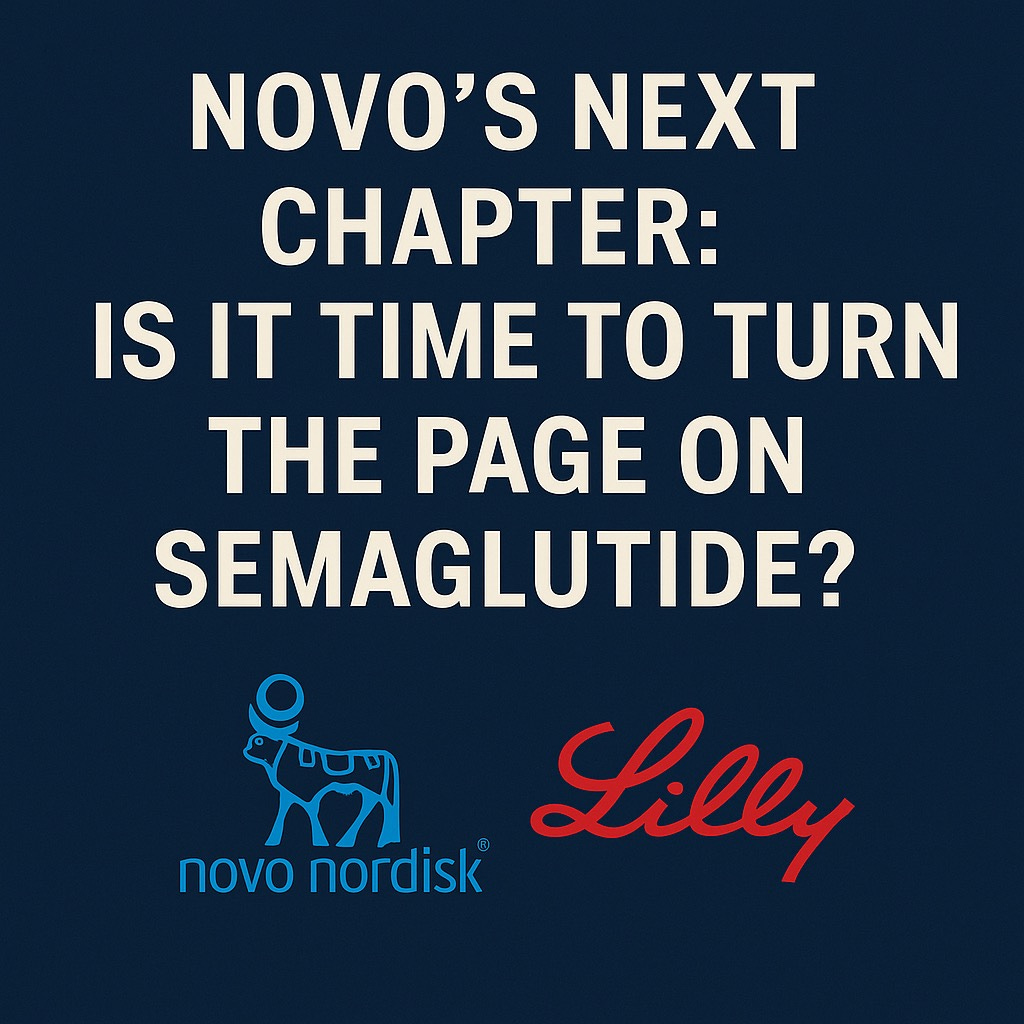Long before Hollywood was hashtagging Ozempic and politicians were weighing in on GLP-1’s, Novo Nordisk was doing something unheard of in pharma. They were betting on people the world had largely written off. People who had largely written themselves off. They were investing in obesity medicine at a time when most doctors still saw obesity as a moral failing instead of a chronic medical condition. At a time when the market treated weight loss as an issue of vanity and regulators cringed at the word “treatment,” Novo stuck their collective neck out. They poured billions into research and pushed to bring molecules to market that would change the game for people living with obesity, all with zero guarantee that payers would ever get on board.
They were the true forerunners. The lone voice in the wilderness, crying out, “Obesity is a disease, and it’s time we treat it like one.”
Much to everyone’s surprise, it worked. Not just the drug, but the entire paradigm shift they set out to create. Semaglutide didn’t just help people lose weight. It validated their lived experience. It reshaped the entire conversation around fatness. The medical world began to see obesity as a disease, and for the first time, people living with that disease were starting to be treated with the dignity and respect they had always deserved.
This insight and analysis comes at a heavy personal cost. I’m writing this article at 2:35 a.m. on a Saturday morning. Why? because this information matters so much to me that I won’t sleep until I transfer what is in my heart, into these words. If this info matters to you, please subscribe .
Today, however, Novo sits at a crossroads. The CEO who helped usher in this era, Lars Fruergaard Jørgensen, has announced he is stepping down. Some reports suggest he was pushed out. Under his leadership, Novo tripled in value and turned semaglutide into arguably the most important drug of our lifetime. Later this year, we even expect clinical data that could position semaglutide as a first-line treatment for early stage Alzheimer’s.
His departure is being framed as a transition. But transitions don’t just shift the top of the org chart. They can signal something deeper. A pivot. A reset. Maybe even a reckoning.
Because here’s the thing. Novo is still all in on semaglutide. Sure, Ozempic is a household name (you’re probably singing the jingle right now) but every successor in the ten years since its launch has or will share the same backbone. Higher dose versions. Oral formulations. Combo therapies. There are tweaks, there are upgrades, but the melody stays the same.
Eli Lilly, by contrast, launched Trulicity in 2014, the first once weekly GLP-1 for type 2 diabetes. Eight years later, they introduced Mounjaro, a GIP and GLP-1 combo. Just over two years after that, they brought it to market for obesity under the name Zepbound. And within three years of Zepbound’s debut, they are expected to roll out the exceptionally potent retatrutide, a triple agonist targeting GIP, GLP-1, and GCG.
All this is not even counting Orforglipron, Lilly’s novel small molecule GLP-1 pill showing efficacy on par with injectable semaglutide. If approved, it is likely to launch in 2026 for both obesity and diabetes. A pill, by the way, that Lilly has already stockpiled over $500 million in inventory, anticipating its launch.
Meanwhile, Novo has slow walked the rollout of its already proven high dose oral semaglutide, likely because of the far more complex process required to produce it. Novo relies on recombinant protein technology, while Lilly’s pill is made through a simpler chemical synthesis.
That is not to say Novo isn’t exploring novel agents. They are. But those early stage candidates will not reach patients anytime soon. And for now, it’s clear that the next handful of major launches from Novo will be more semaglutide, or semaglutide plus.
You can see the strategy. Familiar molecules mean faster trials, smoother regulatory pathways, and lower risk. Less new manufacturing infrastructure. It is the safe play. And maybe for a while, it will work. But obesity is a complex and evolving disease. And the field is quickly shifting toward therapies that go far beyond semaglutide.
So the question isn’t whether semaglutide still works. For millions, it does. The question is whether it is still enough. Whether Novo is too anchored to the past success of semaglutide to lead in a future that will demand more. A future where hundreds of millions globally, who are all battling an incredibly complex and neuanced disease, simply require something new. Something yet to be explored. Something as innovative as, dare I say, semaglutide.
In today’s climate, where cost and access dominate the conversation and newer therapies are coming in faster, stronger, and even slightly cheaper, I’m not sure Novo Nordisk or Lars will ever get the respect they deserve from the patient community. But the truth is simple. Without Novo Nordisk, and innovative risk-takers like Lars, there is no serious obesity medicine. There is no On The Pen.
So today, we salute you, Lars Fruergaard Jørgensen.
For a full breakdown of the leadership shakeup and what it means for Novo’s future, read today’s companion post here:






The writing, the reflection, the observations, the analysis — absolutely on point. I deeply appreciate the history and underscoring the far reaching implications of the real risks Lars and Novo took that led us to today. I’m grateful for those risks and leaps of faith - my own health and weight are a daily reminder that I do not take for granted.
Dave's brain even churns out great pieces in the dead of the night...amazing stuff Dave. Thank you.